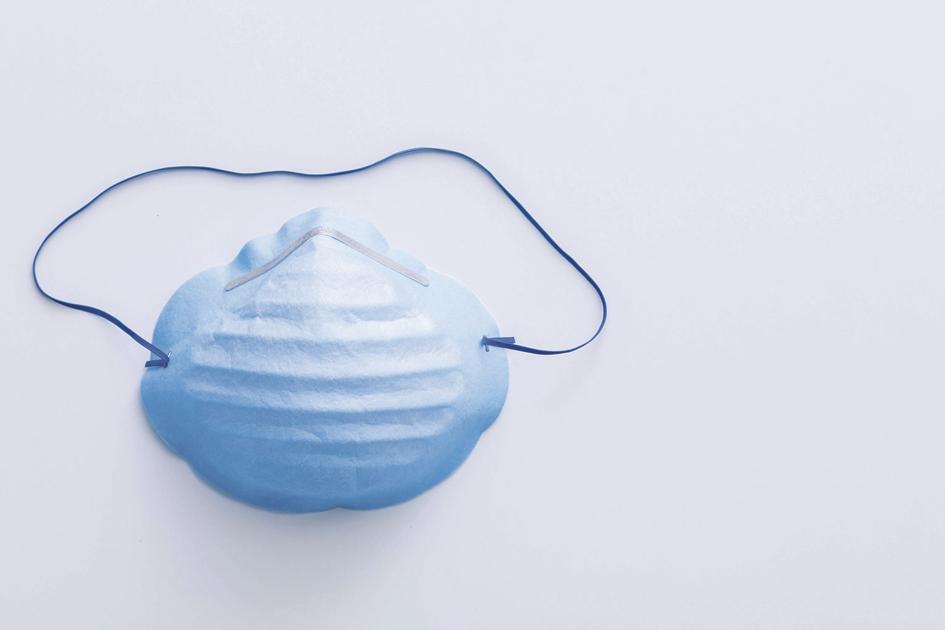Amid Delta Surge, Experts Say Hiding Again May Be Wise Local News
[ad_1]
With more than half of New Hampshire residents fully vaccinated against COVID-19, people have been widely allowed for more than a month to leave their masks at home.
But with the Delta variant soaring in the United States, infectious disease experts say that regardless of vaccination status, it might be good to put on a face covering.
“There have been a number of genetic changes with the Delta variant, making it more contagious and deadly,” said Dr Michael Lindberg, retired chief medical officer at Monadnock Community Hospital in Peterborough. “It’s the worst of both worlds.”
The variant, also known as B.1.617.2, was first identified in India in December, quickly becoming that country’s dominant strain and playing a key role in its recent outbreak. In March, Delta was detected in the United States and its presence has skyrocketed this summer.
By the end of June, Delta accounted for more than 20% of the country’s current COVID-19 cases, but for the two-week period ending July 17, CDC data shows that number jumped to 83 percent.
The presence of the variant in New Hampshire is known, but its precise rate of transmission is not.
As of Thursday, 21 cases of the Delta variant had been identified in New Hampshire, according to NHH Department of Health and Human Services spokeswoman Laura Montenegro.
However, she said in an email that only 25% of the state’s samples are tested for variants.
“This percentage is consistent with what other states are capable of leading,” Montenegro said.
In New England, the most recent CDC data available shows Delta accounted for about 68% of current COVID-19 cases as of July 17 – up almost 20% from the previous data set ending on July 17. July 3.
Dr William Schaffner, professor of medicine in the Division of Infectious Diseases at Vanderbilt University in Tennessee, said there were several reasons why Delta is the “most contagious variant we’ve seen.”
First, once a person has been exposed to it, they start producing the virus earlier than the original strain of the virus, resulting in faster transmission. A person infected with Delta also produces more virus, Schaffner said.
“In fact, on average, 1,000 times more virus than if you were infected with the parental strain,†he said. “So that means every time you breathe out there is a lot more virus in your exhale, so you are much more likely to spread this virus.”
Lindberg, of the Monadnock Community Hospital, added that whenever the virus is transmitted, it has a chance to mutate, creating these variants.
Food and Drug Administration-approved vaccines – manufactured by Pfizer-BioNTech, Moderna, and Johnson & Johnson – are effective against Delta, although slightly less than against other strains.
For example, a recent study from the New England Journal of Medicine shows that the two-dose Pfizer vaccine was 88 percent effective against the variant, rising to about 95 percent effectiveness among other strains.
“This is very important because the main strategy is, of course, hello, vaccination,†Schaffner said.
Even so, infectious disease experts say wearing an indoor mask again is something to consider, depending on local transmission and vaccination rates.
Cheshire County, like the rest of the state, has a “moderate” level of community transmission, according to the CDC. The state recorded an average of 40 new cases per day for the week ending Thursday, marking another week of increased transmission that began on June 22.
Fifty-five percent of New Hampshire’s population is fully vaccinated, the NH Department of Health and Human Services website says. The state has one of the highest vaccination rates in the country.
Considering transmission and vaccination rates, a ‘one size fits all’ approach – like the one implemented last year with strict mandates and regulations – is not the best idea, says Dr Aalok Khole , doctor specializing in infectious diseases. at Cheshire Medical Center in Keene.
“What we did back then was kind of ‘let’s go to the extreme until we figure out what’s going on,'” he said. “I think we’re smarter in a way, maybe we will have to bring these measures back very well, but… it will have to be a tailored approach. [by] by keeping a close eye on these perimeters. “
Likewise, Schaffner said whether or not to bring back certain security protocols should be based on local circumstances.
Lindberg said he agreed with White House chief medical adviser Dr Anthony Fauci, who told CNBC this week that even vaccinated people should consider wearing masks indoors again. as a precaution.
That, he said, should be in addition to social distancing and other safety measures that have become second nature amid the pandemic.
Either way, all of the experts interviewed said Delta’s presence should be taken seriously.
“We know what [Delta] fact elsewhere in the country and around the world that it is becoming a dominant strain, â€Lindberg said,“ and we should respond as such. “
The best way to do it, experts say, is to get more shots.
The number of new people vaccinated in New Hampshire has recently declined, Khole noted, although vaccinations are the “only thing that will stop the stronger strains from spreading.”
And with all the data available, he added, there is “no reason” not to get the vaccine – a point that Lindberg and Schaffner echoed.
“There’s this old adage, ‘No American is left behind,’†Lindberg said. “By not getting the vaccine, that’s what you are doing.”
[ad_2]

